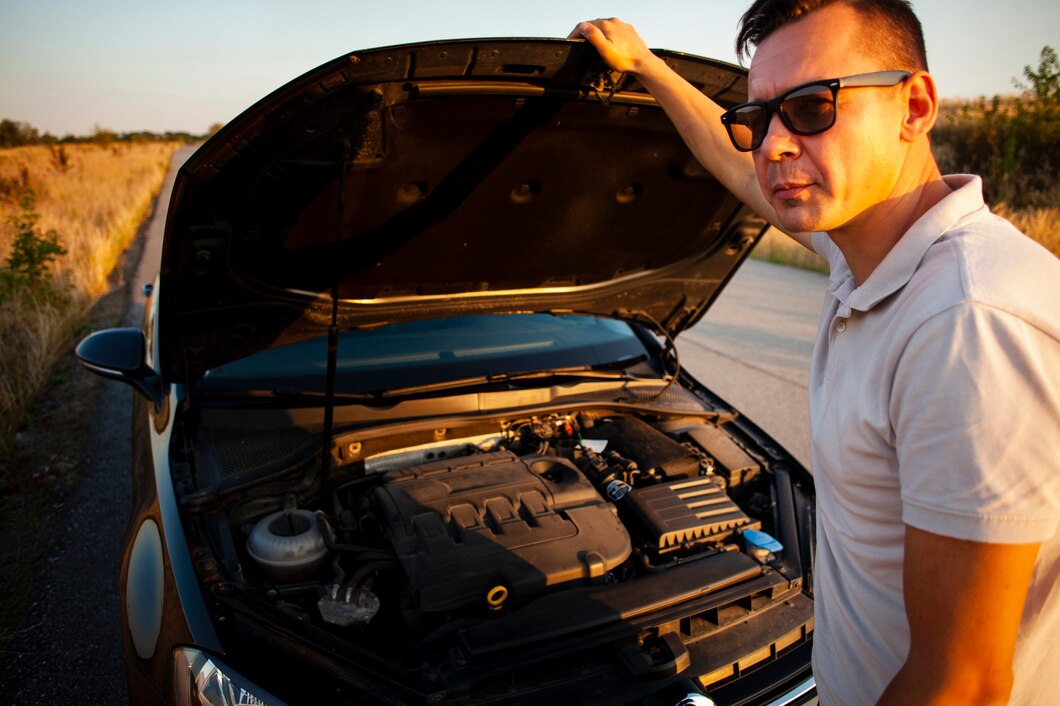Your car’s water pump plays a critical role in maintaining the engine’s temperature by circulating coolant throughout the cooling system. Over time, water pumps can wear out or develop faults, leading to potential engine overheating and costly repairs. Recognizing the early signs of a failing water pump can help you address the issue before it escalates. In this article, we’ll explore some common signs that indicate your car’s water pump may be failing and what you can do to address them.
1. Coolant Leaks
One of the most noticeable signs of a failing water pump is coolant leaks. You may observe puddles of coolant forming underneath your car when parked, or you may notice a sweet smell coming from the engine bay. Coolant leaks can occur due to worn-out seals or bearings within the water pump, leading to a loss of coolant and potential engine overheating. If you notice any coolant leaks, it’s essential to address them promptly to prevent further damage to the engine.
2. Engine Overheating
A failing water pump can result in insufficient coolant circulation, leading to engine overheating. If your car’s temperature gauge consistently shows higher-than-normal temperatures or if you notice steam coming from the engine bay, it’s a sign that the cooling system is not functioning correctly. Engine overheating can cause serious damage to engine components and should be addressed immediately to avoid costly repairs.
3. Whining or Grinding Noise
As the water pump wears out, you may notice unusual noises coming from the engine bay, such as a whining or grinding sound. These noises often indicate worn-out bearings or impellers within the water pump, affecting its ability to circulate coolant effectively. Ignoring these noises can lead to further damage to the water pump and other engine components, so it’s essential to address them promptly.
4. Coolant Contamination
Another early sign of a failing water pump is coolant contamination. If you notice a milky or foamy substance in the coolant reservoir or on the underside of the oil filler cap, it could indicate that coolant is mixing with engine oil. This contamination can occur due to a leaking water pump seal, leading to reduced lubrication and potential damage to engine bearings and components. Coolant contamination should be addressed immediately to prevent engine damage.
5. Steam Coming from the Radiator
If you observe steam coming from the radiator or notice bubbles forming in the coolant reservoir while the engine is running, it could indicate a failing water pump. These symptoms suggest that air is entering the cooling system, disrupting coolant circulation and potentially leading to engine overheating. It’s essential to address this issue promptly to prevent further damage to the cooling system and engine.
What to Do If You Suspect a Failing Water Pump
If you notice any of the early signs indicating a failing water pump, it’s crucial to take action promptly to prevent engine damage and costly repairs. Here’s what you can do:
- Inspect the Cooling System: Check for coolant leaks, coolant contamination, and unusual noises coming from the engine bay.
- Check Coolant Levels: Ensure that the coolant level is within the recommended range. Top up the coolant if necessary and inspect for any signs of contamination.
- Schedule a Professional Inspection: If you suspect a failing water pump, it’s best to consult a qualified mechanic or technician. They can perform a comprehensive inspection of the cooling system and diagnose any underlying issues.
- Address Repairs Promptly: If a failing water pump is diagnosed, follow the technician’s recommendations for repairs or replacements. Delaying necessary repairs can lead to further damage and compromise engine performance and safety.
Recognizing the early signs of a failing water pump is essential for maintaining the health and performance of your car’s engine. By being vigilant for signs such as coolant leaks, engine overheating, unusual noises, coolant contamination, and steam coming from the radiator, you can address issues promptly and prevent costly repairs. Regular maintenance and inspections by qualified professionals will help keep your car’s cooling system in top condition and ensure smooth and reliable operation on the road.











